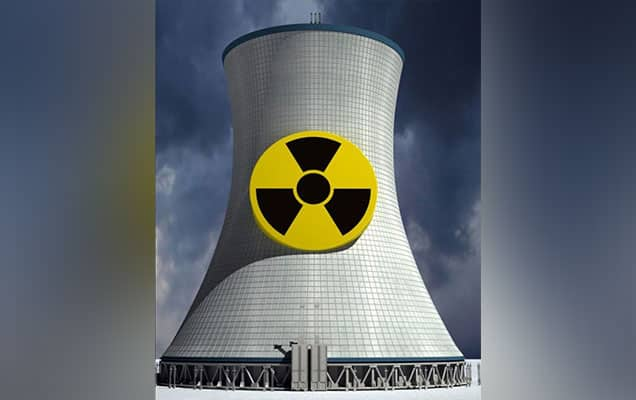The Bharatiya Janata Party is the largest political party in India, and it has an active presence across the length and breadth of the nation. Under Prime Minister Narendra Modi’s leadership, the BJP-led NDA government ushered in an inclusive and development-oriented governance era, catering to the aspirations of the farmer, the poor, marginalized, youth, women, and the neo-middle class.
In the 2024 General Elections, the BJP secured a record mandate for the third time. Shri Modi took oath as the Prime Minister for the third consecutive time. The Party's focus on economic reforms, digital infrastructure, and welfare programmes contributed to its success.
Shri Narendra Modi being sworn in as the Prime Minister in 2024 at Rashtrapati Bhavan
Prior to this, Prime Minister Modi had taken oath as the Prime Minister in 2019 and 2014. In the 2014 Lok Sabha elections, the BJP became the first party in three decades to win a majority on its own. It is also the first non-Congress party to achieve this feat.
Shri Narendra Modi being sworn in as the Prime Minister in 2014 at Rashtrapati Bhavan
The BJP’s history dates far back, well into the 1980s, when the Party was born under the Presidentship of Shri Atal Bihari Vajpayee. The BJP's precursor, the Bharatiya Jan Sangh, was active in Indian politics through the 1950s, 60s, and 70s, and its leader Shri Syama Prasad Mookerjee had served in the first-ever Cabinet of Independent India. The Jan Sangh was an integral part of the Janata Party government under Shri Morarji Desai from 1977 to 1979. This was the first-ever non-Congress government in India's history.
Shri LK Advani, Shri Atal Bihari Vajpayee & Shri Murli Manohar Joshi at a BJP meet in New Delhi
The BJP stands determined to create a strong, self-reliant, inclusive, and prosperous India that draws inspiration from our ancient culture and ethos. The party has been deeply inspired by the philosophy of ‘Integral Humanism’ propounded by Pandit Deen Dayal Upadhyaya. The BJP continues to draw support from every section of Indian society, particularly the youth of India.
In a relatively short period, the BJP became a significant force to reckon with in the Indian political system. In 1989 (9 years since its inception), the Party's tally in the Lok Sabha shot up from 2 (in 1984) to 86 seats, and the BJP was at the centre of the anti-Congress movement that led to the creation of the National Front, which governed India from 1989-1990. The rise continued through the 1990s as the BJP formed governments in several states in the assembly elections of 1990. In 1991, it became the principal opposition party in the Lok Sabha, a remarkable feat for a rather young party.
BJP leaders at a party meet in New Delhi
In the summer of 1996, Shri Atal Bihari Vajpayee was sworn in as the nation’s Prime Minister, the first-ever Prime Minister with a complete Non-Congress background. The BJP got the mandate of the people in the elections of 1998 and 1999, governing the country for six years from 1998-2004 under Shri Vajpayee. The NDA government under Shri Vajpayee is still remembered for its development initiatives that took India to new heights of progress.
Shri Atal Bihari Vajpayee being sworn in as the Prime Minister in New Delhi
Shri Narendra Modi took the plunge into mainstream politics in 1987 and became the General Secretary of the Gujarat BJP in one year. His organizational skills were behind the Nyay Yatra of 1987 and Lok Shakti Yatra in 1989. These efforts played a prominent role in the BJP coming to power in Gujarat, first for a brief period in 1990 and then from 1995 to date. Shri Modi became the National Secretary of the BJP in 1995 and, in 1998, was given the responsibility of General Secretary (Organization), a critical post in the party organization. Three years later, in 2001, the party entrusted him with the responsibility of taking over as the CM of Gujarat. He was re-elected as CM in 2002, 2007, and 2012.
Know more about the BJP, visit the Party’s official website
X Account of the Bharatiya Janata Party
BJP Chief Ministers
X Account of Chief Minister of Arunachal Pradesh, Pema Khandu
X account of Uttar Pradesh CM, Yogi Adityanath
Website of Yogi Adityanath, Chief Minister, Uttar Pradesh
X Account of Chief Minister of Goa, Shri Pramod Sawant
X account of Assam CM, Shri Himanta Biswa Sarma
X account of Uttarakhand CM, Pushkar Singh Dhami
Website of Bhupendra Patel, Chief Minister, Gujarat
X account of Tripura CM, Manik Saha
X Account of Vishnu Deo Sai, Chief Minister, Chhattisgarh
X Account of Dr. Mohan Yadav, Chief Minister, Madhya Pradesh
X Account of Bhajanlal Sharma, Chief Minister, Rajasthan
Website of Nayab Saini, Chief Minister, Haryana
X Account of Nayab Saini, Chief Minister, Haryana
X Account of Odisha CM, Shri Mohan Charan Majhi



















